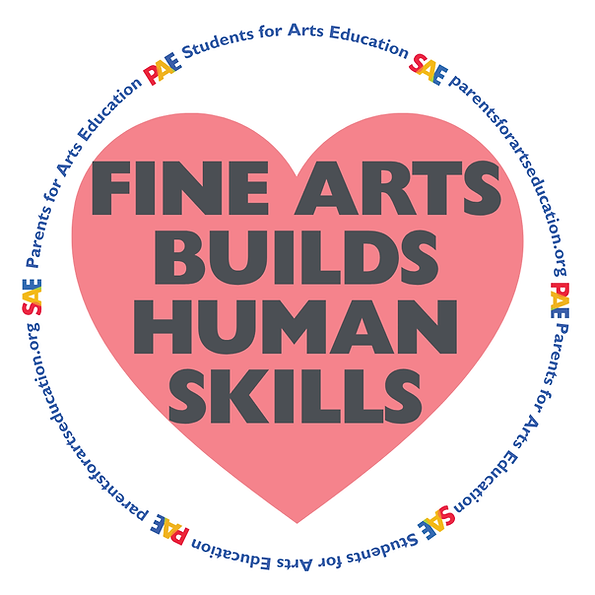
Why Fine Arts Education?
Fine arts courses — like music, art, dance and theatre — improve academics, brain development, workforce skills, social and emotional learning but are unfortunately underfunded and undervalued in most education settings.
#ArtsBuildsHumanSkills
"Yes, academic and technical skills matter.
But in today’s AI-driven world, no career path is guaranteed to lead to a job.
Graduates will need to invent their own paths — and prove how they’re better than a computer.
That requires human skills: creativity, communication, collaboration, grit.
And the best place to build them? Visual and performing arts." - Trina Martin in her TEDx Talk "AI Can't Replace This: Why Arts Education Matters"


Students need both technical and human skills
Schools are increasingly moving toward specific career and technology courses, cutting fine arts and other electives. They often view these programs as "nice to have," rather than essential for success in any career path. We have to change this narrative—not just with administrators and elected officials, but with the next generation of parents who need to understand why these programs are vital for their child's future.
"We can’t wait for the education system to create new programs. We have move the existing visual and performing arts courses that are teaching real world skill building from “nice to have.” to essential for every student."
- Trina Martin, Founder PAE
from her TEDx talk "AI Can't Replace This: Why Arts Education Matters"
The Data
Did you know....
"Music" and "Art" are listed as stand alone subjects important to providing a well-rounded education in the current federal Every Student Succeeds Act, or ESSA, that was signed into law in 2015
TEA (Texas Education Agency) code requires arts education in all public schools. Arts Education is defined as essential learning and NOT an extracurricular activity.
The Texas Cultural Trust's State of the Arts Report
are great resources for additional data
*From the Texas Cultural Trust’s “State of the Arts Report”
** From the book “Your Brain on Art” by Susan Magsamen and Ivy Ross
**Research from Adobe Systems, Inc and “Ready to Innovate”- a collaboration between The Conference Board, Americans for the Arts, and the American Association of School Administrators



What Do Employers Say?
Over a decade ago the statistics from "Ready to Innovate" showed that employers are looking for human skills, like creativity, and having trouble finding them.
Now there are articles all over professional websites speaking of the need for more of a balance between technical and human skills.
Including the 2025 World Economic Forum's Future of Jobs Report which stated "(respondents show) expectation that workers must balance hard and soft skills to thrive in today’s work environments".
Academic classrooms tied to standardized test (that can be graded by a computer) do not have the capacity to drill human skills and hone theme year after year.
But in the performing arts students are "practicing discipline, learning delayed gratification, teamwork and time-management, in order to come together to overcome nerves, most likely deal with a last minute change out of their control, to deliver in one shot. That's real world skill building!" - from Trina Martin's TEDx talk "AI Can't Replace This: Why Arts Education Matters"